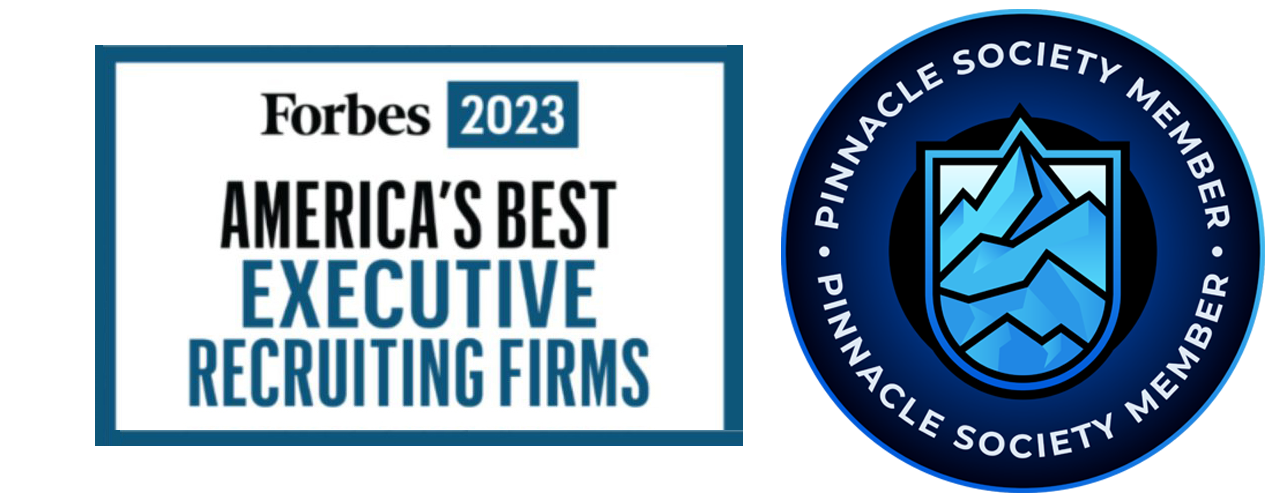The Chief Information Officer (CIO) plays a critical role to lead digital transformation, enhance technology capabilities, and align IT strategies with business objectives in your organization. A CIO’s leadership shapes the technological vision, drives innovation, and ensures an effective use of your organization’s IT resources.
Consider the following strategic guidelines when seeking to recruit a CIO:
Define Strategic Objectives and Responsibilities:
Begin by leveraging your organization’s clearly defined strategic technology and business objectives, IT priorities, and CIO role responsibilities. Prioritize the key responsibilities, such as digital initiatives and innovation, IT infrastructure, cybersecurity risks, and align IT investments to business timing. With a specific outline of role requirements aligned to business focus areas and timing, you are prepared to target in a concise manner the leader who will successfully address and progress your organization’s digital transformation agenda. HR professionals should consider collaborating with executive recruiters to develop a robust candidate profile and screening criteria tailored to your organization's requirements.
Seek a Balance of Technical Expertise and Business Acumen:
A top-tier CIO typically demonstrates a rich blend of technical expertise with rigorous business acumen to build succinct technology pathways while bridging business gaps or hinderances for effective business progression. Serious candidates should have a solid comprehension of emerging technologies, IT trends, cybersecurity best practices, data analytics, cloud computing, and viable digital transformation strategies. Additionally, prioritize candidates who can communicate complex technical concepts to senior leadership and stakeholders in a clear and strategic manner.
Activate a Comprehensive Search:
Research confirms that the best outcomes are achieved when the results include expanded inputs – active and passive candidates. Currently it is essential to extend beyond internal referrals and professional associations to also engage professional networking platforms like LinkedIn, industry events, job boards and an executive search firm specialized in IT leadership roles, to reach and secure top-tier candidates.
Emphasize Cultural Fit and Leadership Values:
It’s essential to include an assessment of the candidate’s cultural fit and leadership values to determine their alignment with your organization's vision and values. Prioritize candidates who demonstrate distinct leadership traits, strategic thought leadership, collaborative posture, flexibility, adaptability, resilience, and a proven track record of driving effective organizational change through technological innovation. Evaluation of candidates should also include an assessment of their ability to foster relationships, influence decisions, inspire teams, navigate, and solve complex challenges, and deliver results in a dynamic environment.
Offer Competitive Compensation with Growth Opportunities:
Competitive compensation packages typically reflect the candidate's experience, expertise, market value, perceived organizational impact, performance-based incentives, stock options and executive-level benefits. It is important to remain aware that even as a top C-Suite executive, many candidates remain interested in professional development opportunities, and career advancement prospects. Therefore, consider highlighting opportunities for professional growth, mentorship programs, leadership training, professional associations, and exposure to senior leader forums to showcase the level of committed investment in the candidate’s career journey.
By including these five strategies while recruiting a Chief Information Officer, organizations become better equipped to identify a top-tier, visionary who personifies digital transformation and innovation while elevating IT roadmaps aligned with the organization’s business goals to sustain a competitive advantage to effectively progress the digital evolution for your organization.
Engage an executive search firm specialized in IT and SAP skills. Three ways to connect with ASAP Talent Services: